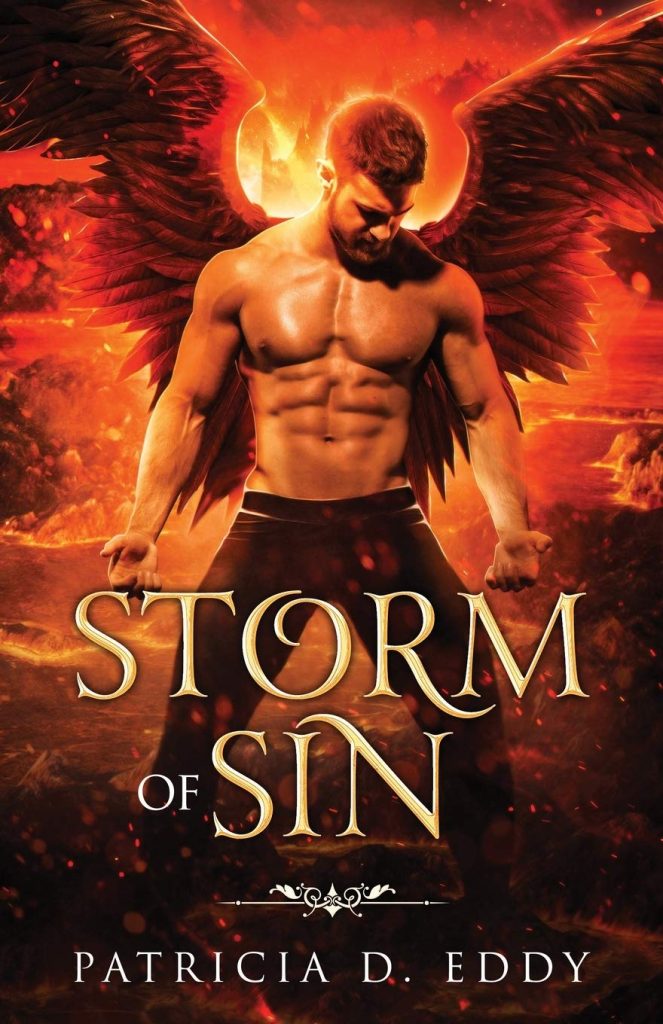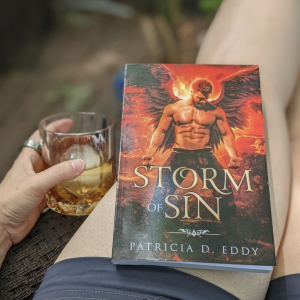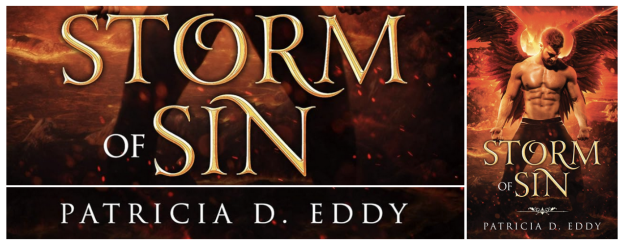I received a signed copy of Patricia D. Eddy‘s Storm of Sin in a monthly Romance Reveal Book Box.

My crimes are legion. My sentence eternal.
Hell fractured my soul into dust and left me broken, yet I deserved so much worse.
Finally free from Lucifer’s torment, I must atone.
But the lives I took and the pain I caused haunt me every day.
Half angel, half demon, but nowhere near whole.
Until I meet her.
I should not want Zoe Dawes, but she whispers her desires in my dreams and chases away my nightmares.
When an ancient evil returns, only I can stop him. But if I do, I risk losing everything—including the woman who reminds me what it is to feel. To live.
Zoe is mine. And nothing will keep us apart.
I work for the Bureau of the Occult and the Other. Zoe is my partner.
My name is Sinclair.
But you can call me Sin.
![]()
I enjoyed this well enough. The writing is readable, the editing pretty clean, and I liked the characters. There was just something missing, though. Nothing in it lit me on fire, and it is very clearly part of a series (though not labeled as such) or, at the least, a spin-off of a series. I suspect it’s a spinoff or part of the Cursed Coven series, as Maddox and Killian from Wicked Omens make an appearance. (I’ve not read it, but I was so certain Storm of Sin must be a spin-off of something that I took a dive into other Eddy books to find any obvious overlap.) While this is still followable, I felt the lack of other books.
But more than that, the plot is fairly unsubstantial. I liked the romantic aspect, but there wasn’t enough of the rest of the plot to truly suck me in. More importantly, I felt the villain and his motives were cliched. While I appreciate that the hero in this book had been traumatized in the past and was still affected by it. He was traumatized by what he was made to do, while women are consistently traumatized by what is done to them. This is an important distinction.
I often complain when reading books in this and similar genres that women are always and exclusively victims and men are perpetrators, even when the distinction doesn’t really make any sense. As in this book, if demons are bidding on the chance to abuse someone for a night (this includes rape, but isn’t limited to or even necessarily predominantly rape), why would women be the only ones? Since this perpetrator/victim dichotomy is part of our unspoken cultural  narrative, it isn’t unusual to encounter it. (I call it the low-hanging fruit of plotting for a reason.) But I find that sometimes you feel it more in a book than others. Eddy, here, leans pretty hard into it, and, as always, I’m generally bored with the lack of imagination it takes to write such a plotline.
narrative, it isn’t unusual to encounter it. (I call it the low-hanging fruit of plotting for a reason.) But I find that sometimes you feel it more in a book than others. Eddy, here, leans pretty hard into it, and, as always, I’m generally bored with the lack of imagination it takes to write such a plotline.
So, while the book kept me amused for a few hours, it was just kind of a ‘meh, it was ok’ read for me.
Other Reviews:
